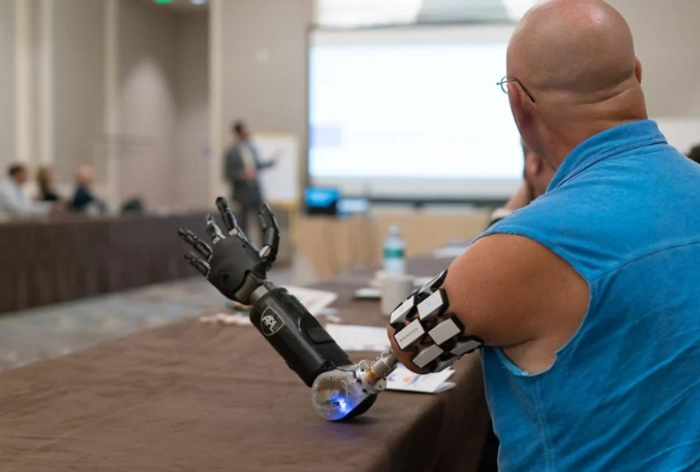Introduction
Prosthetic technology has come a long way from the basic wooden limbs of the past. Today's prosthetics are marvels of engineering, designed to enhance mobility, functionality, and quality of life for individuals who have lost limbs. At Dhyan Healthcare, we are excited to share the latest advancements in prosthetic technology that are making a profound difference in the lives of amputees.
The Evolution of Prosthetic Technology
The journey of prosthetic technology has been marked by continuous innovation. From rudimentary prosthetics made from wood and leather to advanced devices incorporating robotics and AI, the field has evolved to meet the needs of users more effectively. Key advancements include:
-
Materials and Design:
- Lightweight Materials: Modern prosthetics use materials such as carbon fiber, titanium, and high-grade plastics, making them lighter, stronger, and more durable.
- Ergonomic Designs: Contemporary designs focus on comfort and functionality, ensuring that prosthetics fit better and cause less irritation.
-
Myoelectric Prosthetics:
- Muscle Signal Control: Myoelectric prosthetics use electrical signals from the user's muscles to control movements, allowing for more natural and precise control.
- Advanced Sensors: These prosthetics incorporate sensors that detect even subtle muscle contractions, enhancing the responsiveness of the device.
-
Bionic Limbs:
- Robotic Assistance: Bionic limbs integrate robotics to mimic natural limb movements, providing enhanced functionality and dexterity.
- AI and Machine Learning: Some bionic limbs use AI to learn and adapt to the user's movements and preferences over time, improving performance and ease of use.
-
Osseointegration:
- Direct Bone Attachment: This technique involves surgically attaching the prosthetic limb directly to the bone, offering better stability and control compared to traditional socket-based prosthetics.
- Reduced Discomfort: Osseointegration eliminates the need for a socket, reducing skin irritation and increasing comfort for the user.
-
3D Printing:
- Customized Prosthetics: 3D printing technology allows for the creation of highly customized prosthetics tailored to the exact specifications of the user.
- Cost-Effective Production: This technology also reduces the cost and time required to produce prosthetic limbs, making them more accessible.
-
Smart Prosthetics:
- Bluetooth Connectivity: Some modern prosthetics can connect to smartphones and other devices via Bluetooth, allowing users to fine-tune settings and monitor performance.
- Health Monitoring: Smart prosthetics can track the user's activity levels, providing valuable data for healthcare providers to optimize rehabilitation plans.
The Impact of Advancements
These advancements in prosthetic technology have significantly improved the lives of amputees by:
- Enhancing Mobility: Modern prosthetics provide greater range of motion and more natural movement, enabling users to perform daily activities with ease.
- Improving Independence: With advanced control and functionality, users can perform tasks independently, reducing reliance on caregivers.
- Boosting Confidence: Better-fitting and more functional prosthetics help users feel more confident and comfortable in social and professional settings.
- Reducing Pain and Discomfort: Innovations like osseointegration and ergonomic designs minimize discomfort and skin issues associated with prosthetic use.
Looking Ahead: Future Trends
The future of prosthetic technology is promising, with several emerging trends set to revolutionize the field further:
- Neuroprosthetics: Direct brain-controlled prosthetics are in development, offering the potential for even more intuitive and seamless control.
- Regenerative Medicine: Advances in tissue engineering may allow for the integration of living tissues with prosthetics, improving functionality and comfort.
- Wearable Sensors: Enhanced sensors could provide real-time feedback on pressure, temperature, and other factors, helping to prevent injuries and optimize prosthetic performance.
Conclusion
The advancements in prosthetic technology have transformed what is possible for individuals with limb loss. At Dhyan Healthcare, we are dedicated to staying at the forefront of these innovations to provide our patients with the best possible care and options. Whether you are considering a prosthetic limb for the first time or looking to upgrade your current device, we are here to support you every step of the way.
For more information or to schedule a consultation, please visit our website or contact our clinic. Together, we can help you achieve greater mobility and a better quality of life.


